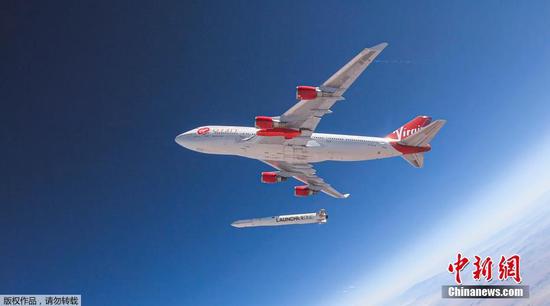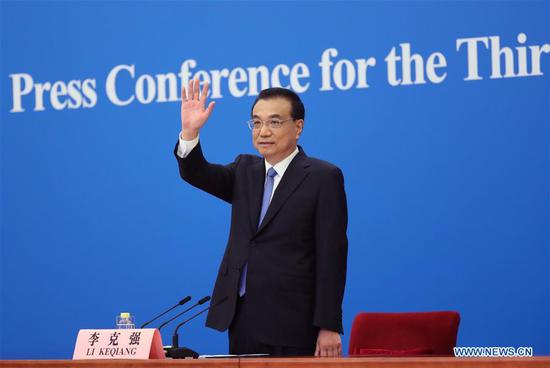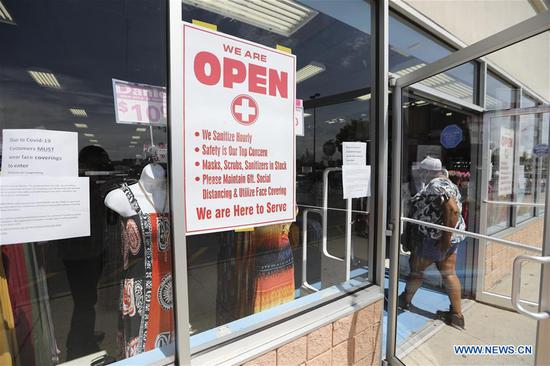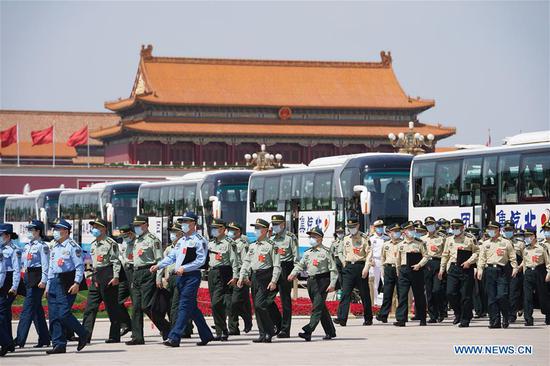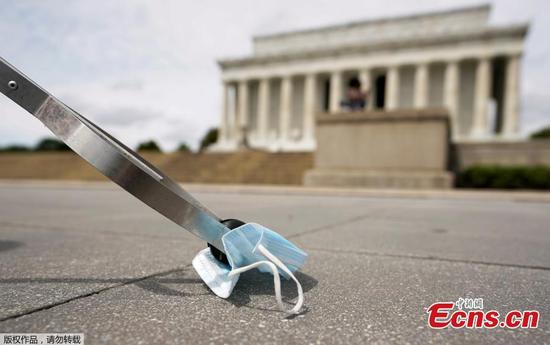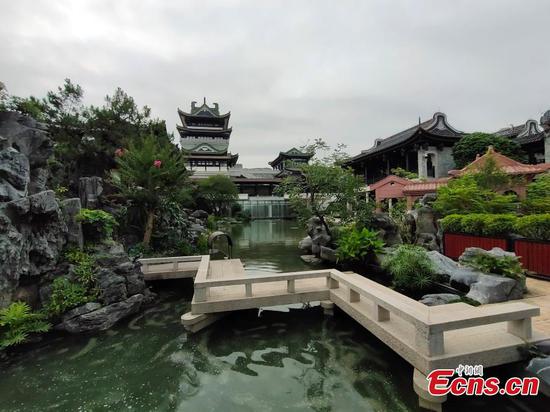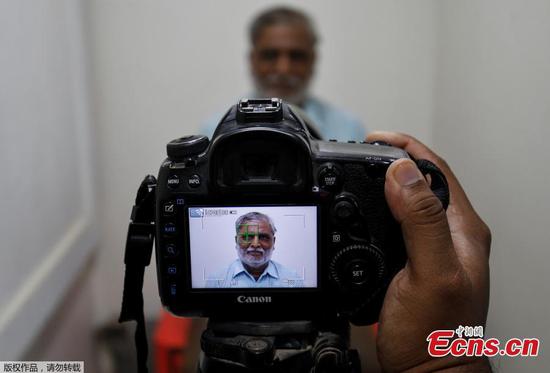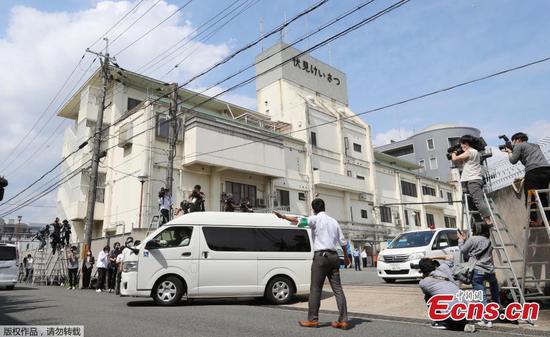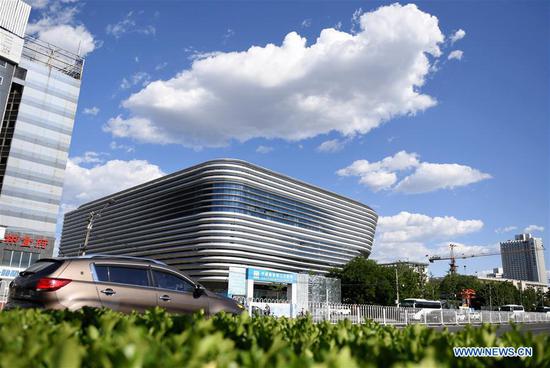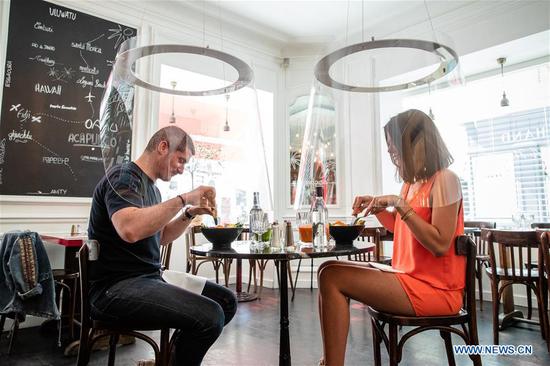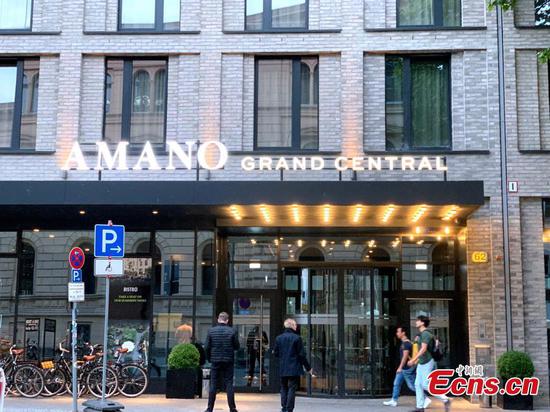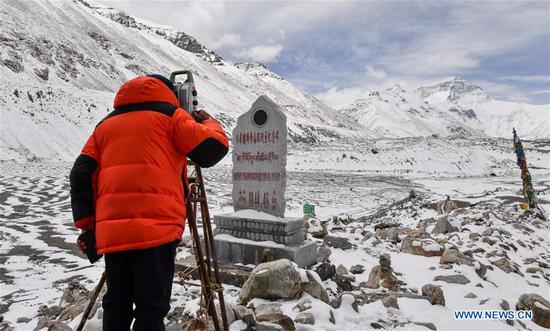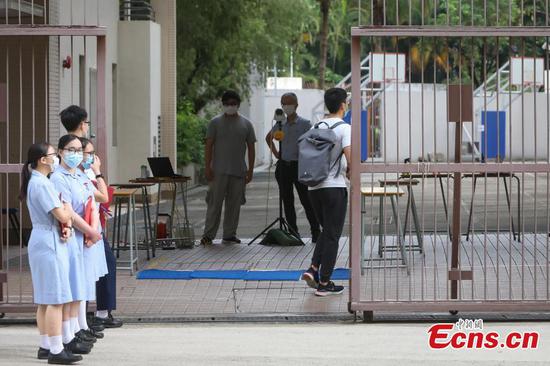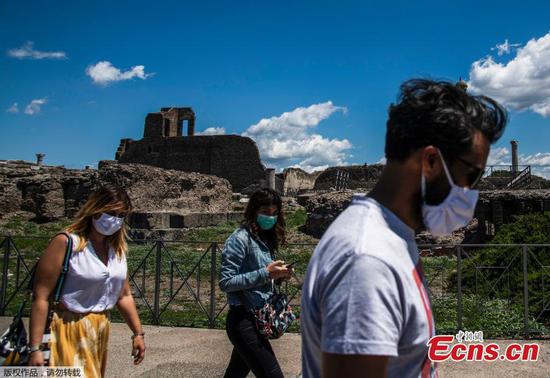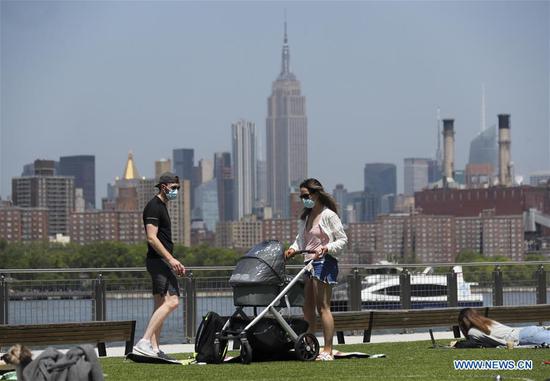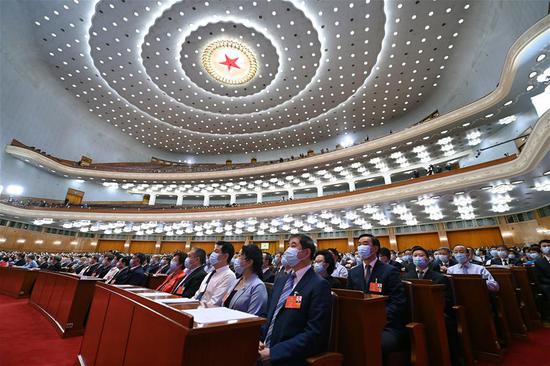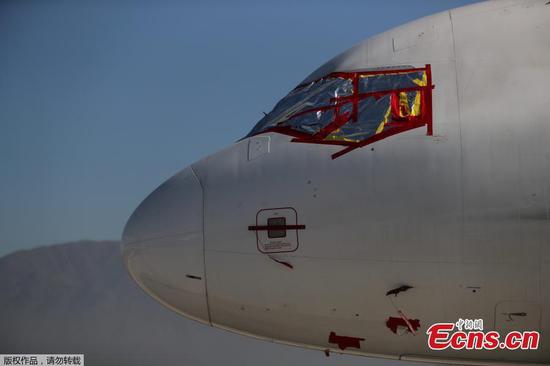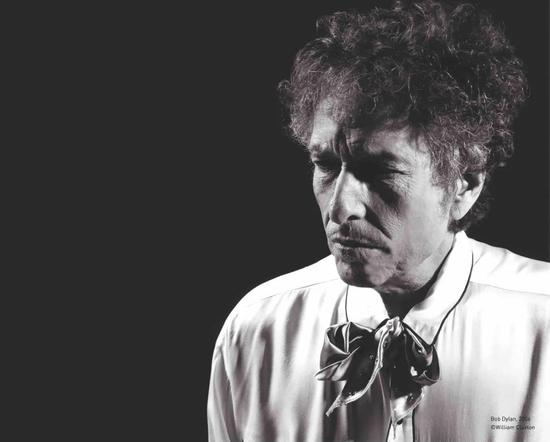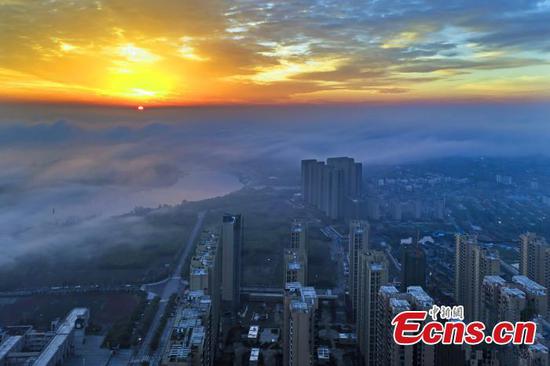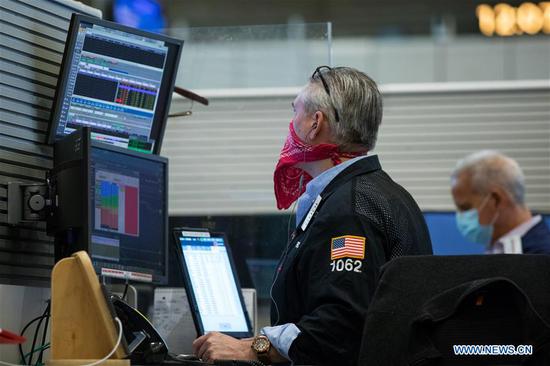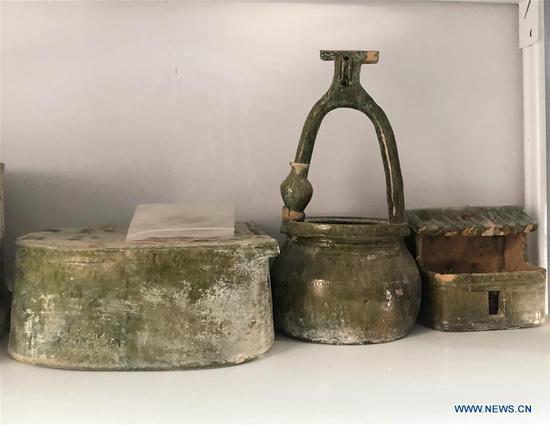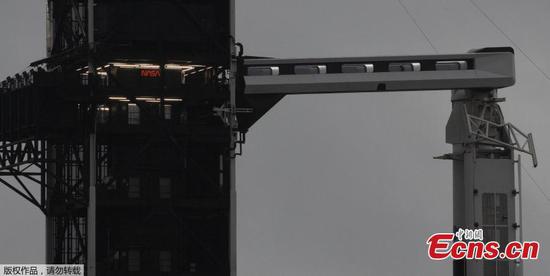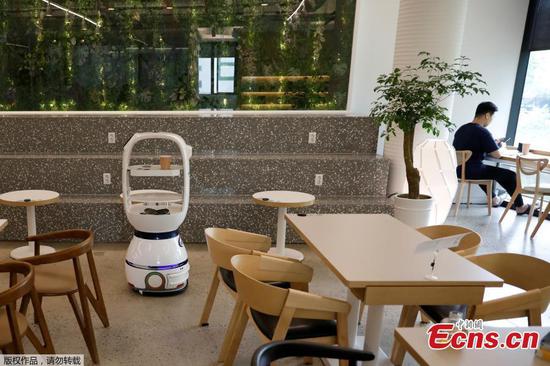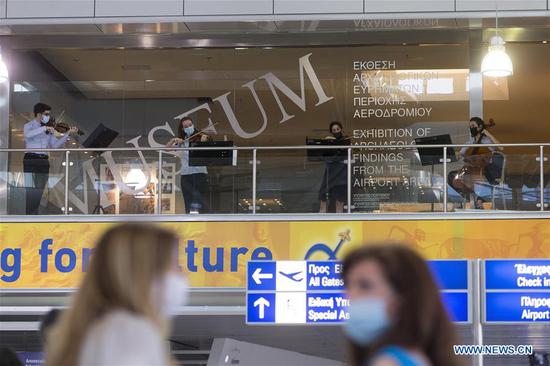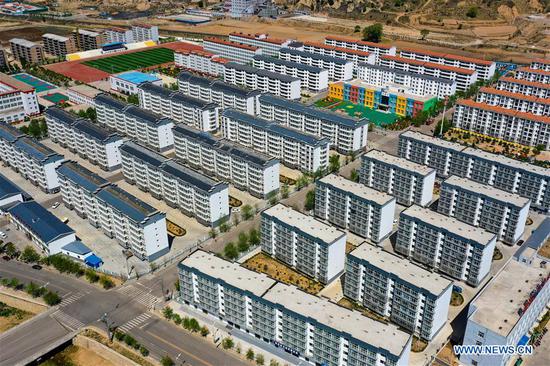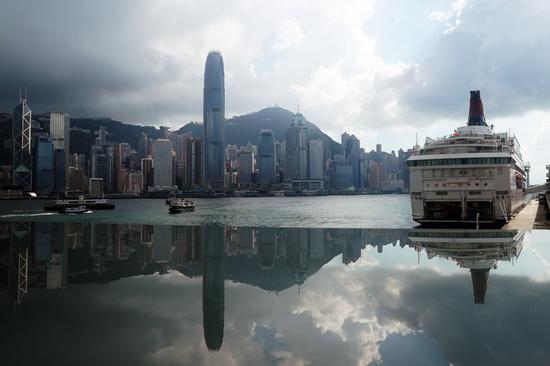
Photo taken on Aug. 27, 2019 shows the scenery of the Victoria Harbor in Hong Kong, south China. (Xinhua/Li Gang)
The Hong Kong Special Administrative Region (HKSAR) government said all of the rights and freedoms enjoyed by Hong Kong people and international investors will remain unchanged after the national security legislation.
"The vast majority of law-abiding Hong Kong residents, including overseas investors, have nothing to fear," the HKSAR government spokesman said in response to statements by the U.S. Chamber of Commerce and the American Chamber of Commerce in Hong Kong.
Any unilateral change of U.S. policy towards Hong Kong will create a negative impact on relations between the two sides as well as harm the Untied States' own interests, the spokesman said.
Hong Kong's special status under "one country, two systems" has worked well for both Hong Kong and overseas businesses operating here, which is Hong Kong's greatest strength and will remain in future, the spokesman said.
The spokesman said there has been a serious legal loophole in national security that has to be plugged especially in light of the riots and violence as well as the apparent emergence of homegrown terrorism in Hong Kong, which has posed a major threat to national security.
The spokesman said the "one country, two systems" principle will not be jeopardized and the institutions that underpin Hong Kong's success will not be eroded by the national security legislation.
The related national security law will target acts and activities including secession, subverting state power, organizing and carrying out terrorist activities, as well as activities by foreign or external forces to interfere in the affairs of the HKSAR, said the spokesman.
As a founding member of the World Trade Organization (WTO) and an active participant in Asia-Pacific Economic Cooperation (APEC), Hong Kong remains committed to the global rules-based, multilateral trading system and will always maintain a level playing field and nationality neutral policy for business, the spokesman said.
Global businesses place a high premium on the safety and stability of an economy to provide confidence in making decisions on where to invest, work and live, the spokesman said.
Violent social unrest in Hong Kong over the past year, which has resurfaced again recently, has had a severe impact on business and investor confidence and adversely affected the bottom line of businesses in sectors such as aviation, retail, tourism and catering, among others, the spokesman said.
Hong Kong and the United States have a long history of mutually beneficial cooperation in areas including trade, business and investment, the spokesman said.
More than 85,000 U.S. citizens live and work in Hong Kong and there are very deep and broad people-to-people bonds in areas such as education, arts and culture, the spokesman said.
The United States' trade surplus with Hong Kong has been the biggest among all its trading partners, totaling 297 billion U.S. dollars from 2009 to 2018, and Hong Kong's direct investment in the United States supported some 210,000 jobs in the United States, the spokesman said.









